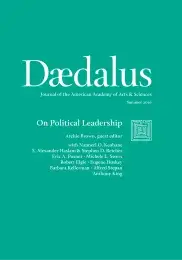Against the Führerprinzip: For Collective Leadership
The Führerprinzip has not been confined to Nazi Germany. The cult of the strong leader thrives in many authoritarian regimes and has its echoes even in contemporary democracies. The belief that the more power a president or prime minister wields the more we should be impressed by that politician is a dangerous fallacy. In authoritarian regimes, a more collective leadership is a lesser evil than personal dictatorship. In countries moving from authoritarian rule to democracy, collegial, inclusive, and collective leadership is more conducive to successful transition than great concentration of power in the hands of one individual at the top of the hierarchy. Democracies also benefit from a government led by a team in which there is no obsequiousness or hesitation in contradicting the top leader. Wise decisions are less likely to be forthcoming when one person can predetermine the outcome of a meeting or foreclose the discussion by pulling rank.
